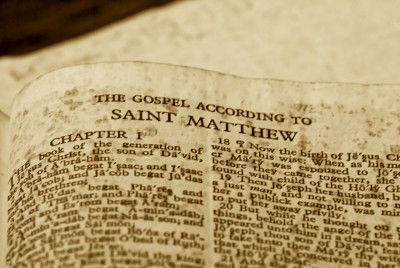“Therefore all that they tell you, do and observe, but do not do according to their deeds,” Jesus in Matthew 23:3
“He knew that the best way to avoid Jesus was to avoid sin.” (author Flannery O’Connor , on her character Hazel Motes in Wise Blood.)
“There are people in every church, no matter what kind of church it is, who struggle with the distinction between law and gospel, who struggle with the driving place of grace in their pursuit of holiness…Legalism lurks in every heart, actually, mine and yours." (Jarod Wilson, www.gospeldrivenchurch.blogspot.com, September 27, 2011)
After repeated encounters in the temple with the scribes and Pharisees as well as other religious elite of Israel, Jesus spoke to the crowds and to His disciples (v. 1). He harshly warned them about the scribes and Pharisees, the very ones who had challenged Him His entire ministry. Imagine! The gatekeepers of God for Israel, setting themselves up against the Lord Himself!
The scribes and Pharisees, Jesus said, have seated themselves in the chair of Moses (v. 2), meaning they spoke with the voice of Moses; they spoke as Moses’ would speak if he were alive on that day. In ancient times, a teacher sat while the students stood. The Sermon on the Mount begins with Jesus sitting down (see Matthew 5:1). “Chair” is a figure of speech used to imply exceptional authority and knowledge, just like today we will say such-and-such professor occupies a certain chair at a particular university.
The scribes and Pharisees have seated themselves (v. 2). They appointed themselves as the heir of Moses’ chair, not waiting to be ushered to such a place of honor. And it appears that Jesus affirms them. “All that they tell you, do and observe,” Jesus says (v. 3). But Jesus is not affirming the scribes and Pharisees; rather He is affirming the Law of Moses. Jesus said that He did not come “to abolish the Law and the Prophets, but to fulfill,” (Matthew 5:17). Jesus also says to the unbelieving Jews in John’s gospel, “If you believed Moses, you would believe Me, for he wrote about Me,” (John 5:46).
Jesus now brings the hammer down. He warns the crowds and His disciples (v. 1) to not do according to their (the scribes and Pharisees) deeds; for they say things and do not do them (v. 3). Jesus then gets specific: “They tie up heavy burdens and lay them on men’s shoulders, but they themselves are unwilling to move them with so much as a finger,” (v. 4). The scribes and Pharisees padded the Law of Moses with an additional layer of rules to make it doubly hard on the average Jew to following the teachings of Moses. From these extra layers the Pharisees and scribes have exempted themselves while condemning those who fail at keeping them.
Jesus continues: “But they do all their deeds to be noticed by men” (v. 5). Their heart motivation is not to please God, rather to seek the approval of others. Jesus gives specific examples of how these hypocrites like to be noticed by men in Matthew 6:1-7. In that passage, Jesus says in part, “they [hypocrites] love to stand and pray in the synagogues and on the street corners so that they may be seen by men. Truly I say to you, they have their reward in full,” (Matthew 6:5, emphasis added). Hypocrites. Plain and simple.
But here is where we must be careful. For the spirit of the Pharisees exists in all of us. “All of us have sinned and fallen short of the glory of God,” Paul reminds us in Romans 3:23. “All of us like sheep have gone astray,” Isaiah says in Isaiah 53:5. All of us have sought the approval of others at the expense of God’s approval; all of us have thought at some point our religious efforts make us better than “that other guy.” The very act of smugly criticizing the Pharisees shows that we are guilty of the very thing by which we criticize the Pharisees! Compared to the standard of holiness put forth by Almighty God, no one can stand before God on his own.
Yet that is exactly why Christ died for our sins. He is willing to exchange His holiness for our Pharisee-within. “He made Him who knew no sin to be sin on our behalf, so that we might become the righteousness of God in Him,” (2 Corinthians 5:21). This truth made 16th century Reformer Martin Luther sing, “O the sweet exchange, O the inscrutable creation, O the unexpected benefits; that the iniquity of many should be concealed in One Righteous Man, and the righteousness of One should justify the iniquitous!”
Exchange the burden that today’s Pharisees, including the one in you, have put on your shoulders and are unwilling to move a finger to help you. We all have burdens of hurt, fear, guilt, failure, and the disapproval of others. We have burdens of self-righteousness, pride, lust, and idolatry. Exchange those burdens with Jesus. For He Himself has said, “Come to Me all you who are weary and heavy-laden and I will give you rest. Take My yoke upon you…For My yoke is easy and My burden is light,” (Matthew 11:30).
